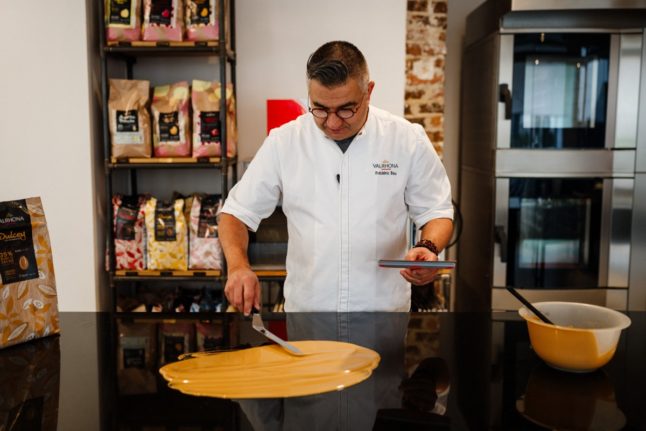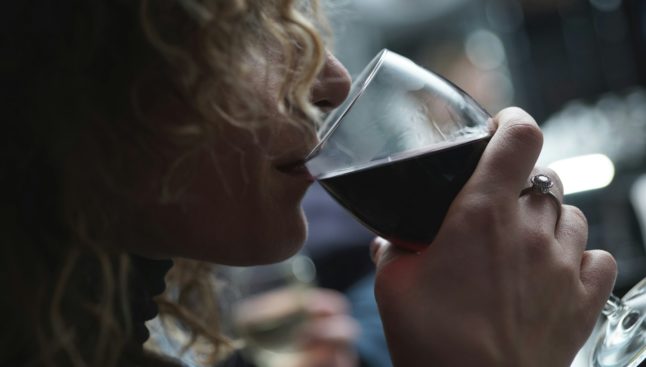Blond chocolate was born from an accident.
French pastry chef Frederic Bau was demonstrating his skills at an exhibition in Japan, and left his white chocolate warming a little too long in a bain-marie… four days, to be precise.
“By chance, by magic… it became blond! This chocolate appeared with an incredible colour and smell”, recalls Bau, who is creative director for chocolatier Valrhona.
Bau immediately smelled the commercial potential of this happy blunder, but it took seven years of testing to perfect its unique aromatic qualities and consistency.
The recipe remains a secret but has been officially registered by Valrhona, and is sold under the name Dulcey since 2012.
However, the basic chemistry is well-understood. It is the “Maillard reaction”, a sequence of chemical reactions between amino acids and reducing sugars, causing browning and aromas that are close to toasting.
Blond chocolate has the milky fattiness of white chocolate but is much less sweet, with a soft caramel flavour and an aftertaste of roasted coffee.
French pastry chefs tend to snub white chocolate, associating it with the big slabs they gobbled as children.
But blond opens up new possibilities.
“It’s very different from other chocolates. It gives a very biscuity, very delicious taste,” Nice-based pastry chef Philippe Tayac, who combines it with hazelnuts for a tartlet, told AFP.
Bau combines it as a pure fondant dessert with freshly roasted apples and a Tahitian vanilla cream, and he also recommends “breaking it up” with more distinct fruity combinations, such as citrus or red fruit.
Despite efforts, Valrhona has not managed to convince French lawmakers to reopen its legal definitions.
So blond remains formally just another type of white chocolate, which was the last to be legally recognised – after dark and milk chocolate – after its invention in the 1930s by Switzerland’s Nestlé.
And France’s Alpine neighbours are not waiting to be beaten to the punch on a fourth variety.
Valrhona’s key competitor in the world of professional-grade chocolate, Swiss giant Barry Callebaut, launched a marketing campaign in 2017 for its own fourth type: this one bright pink and derived from Ruby cocoa beans grown in Ecuador, Brazil and Ivory Coast.
Barry Callebaut calls its Ruby chocolate “the biggest innovation in chocolate in 80 years”.
The company was diplomatic when asked about the rivalry by AFP, saying in a statement: “The best chocolate in the world is the one that gives you a moment of indulgence – no matter where it was produced and no matter the colour.”



 Please whitelist us to continue reading.
Please whitelist us to continue reading.
Member comments